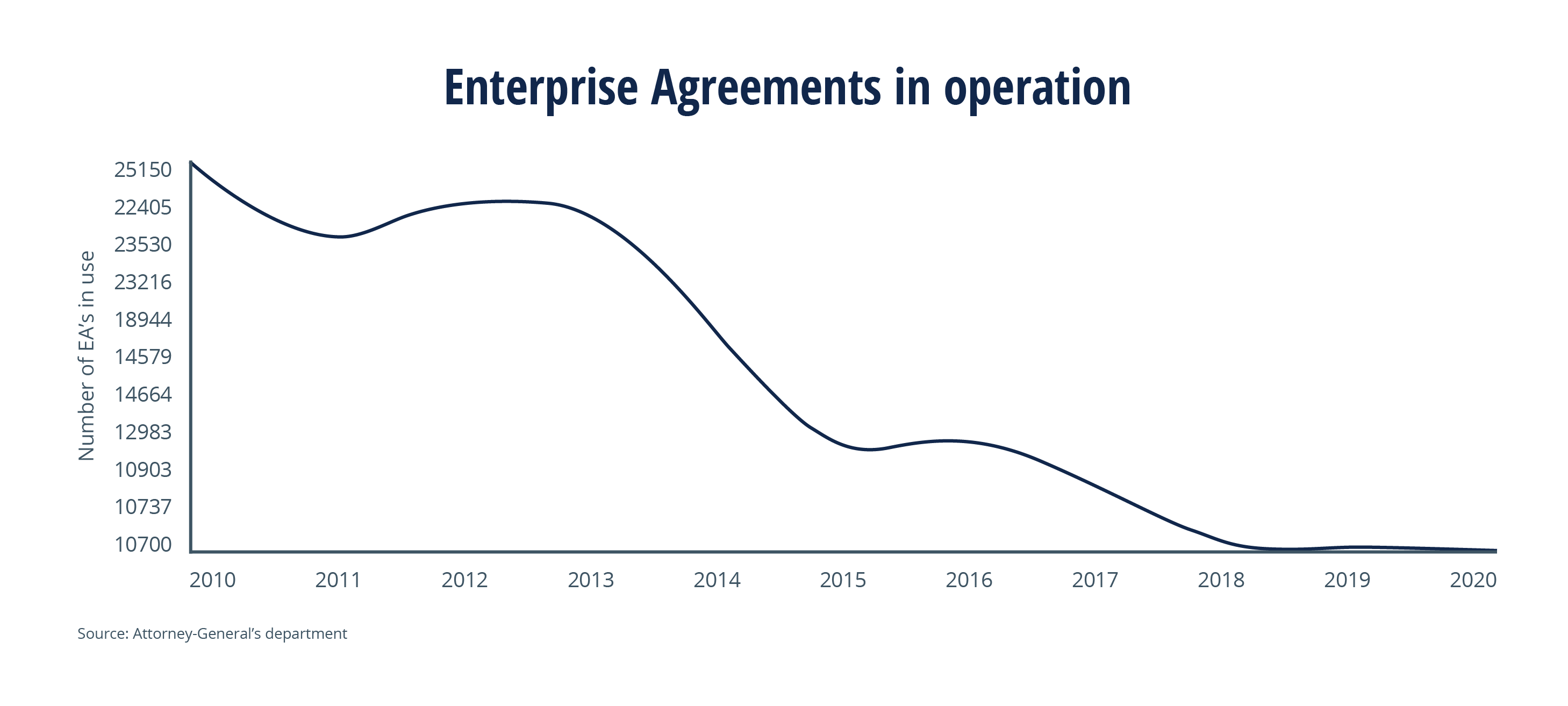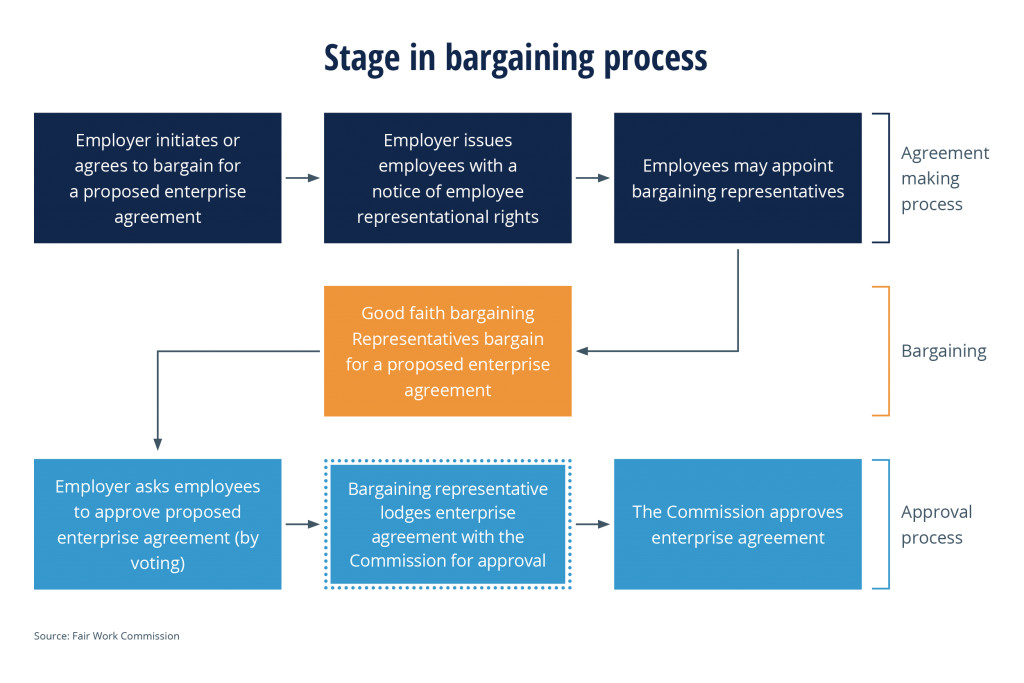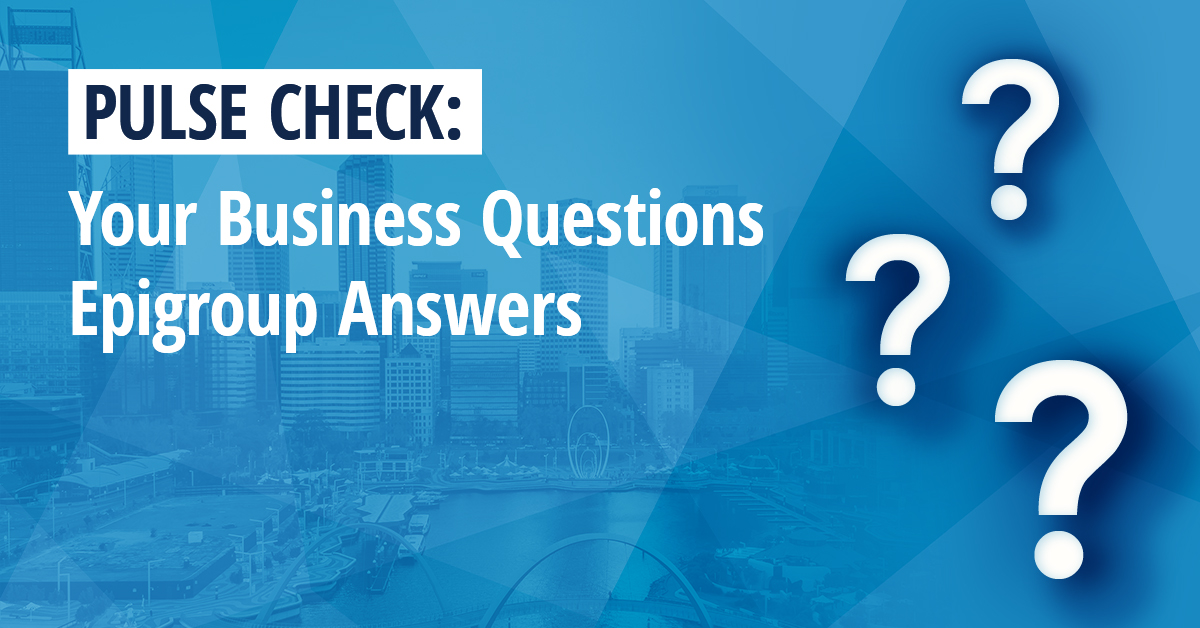When a business is creating an enterprise agreement (EA), the final hurdle of getting it approved by the Fair Work Commission (FWC) is a crucial but highly technical process.
A decline in enterprise agreements in recent years, from more than 25,000 in 2010 to 10,700 in June 2020, is largely linked to the complexities associated with getting an EA over the line.
EA approvals are often delayed or rejected because they do not fully comply with statutory requirements or they need to include additional information to be assessed, according to FWC Deputy President Abbey Beaumont.
CCIWA advises that businesses avoid going down this road without expert and objective guidance, as not doing so can be costly and time consuming.
CCIWA and the FWC outline some common traps employers fall into when navigating the EA approvals process.

An example of a technical step often overlooked, which causes issues at the application stage, is that once a business commences bargaining for an EA, it must issue its workers with a notice of employee representational rights (NERR).
Meeting a business’ obligations under s.173 of the FW Act, a NERR is document outlining the rights of employees to be represented by a bargaining representative.
It must be sent to all employees who will be covered by an EA, no later than 14 days after an employer commences bargaining.
A NERR informs employees of their right to appoint a bargaining representative, who may be:
- an employer covered by the agreement
- a representative appointed by an employer
- an employee that will be covered by the agreement
- representative appointed by an employee, or
- a union (by default if an employee is a member)
Director of CCIWA’s Workplace Relations legal team Ryan Martin explains that businesses can be caught out at this stage of the process by not clearly understanding when the bargaining process starts, triggering the notification time.
“Commencing bargaining can be as simple as telling your employers you want to draw up an EA, and then the clock might be ticking to issue the NERR,” he says.
“There needs to be some strategy behind the process before you commence bargaining - you need to have an understanding of all of the milestone dates required under the FW Act as well as an appreciation of the technical steps that you need to have complied with, to ensure your EA can be approved by the FWC.
“You should have a set date that you want to commence bargaining and make sure you issue the NERR within 14 days of that – and keep records of these dates as you will need them later.”
FWA amendments propose to extend that time and to simplify the NERR document to reduce margins for error.
Martin adds that this becomes important down the line, when you lodge the required F16 and F17 forms with the FWC – the application to get an EA approved.
Importantly, the F16 document is a statutory declaration, which means someone, usually the business owner, will need to sign off on the timeline of events as being truthful.
A person who intentionally makes a false statement in a statutory declaration is guilty of an offence, the punishment of which can include imprisonment for a term of four years.
“Any business considering whether to initiate bargaining for a new EA should download copies of these documents to best understand what information they need to provide, how much detail will be needed and what supporting documents will need to be provided when they file their application with the FWC” he adds.
A bargaining process may then take place where the employer and any employee appointed bargaining representatives negotiate the terms and conditions of the EA, which will then be voted on by the employees.
An EA can then be lodged to the FWC for approval, but it will still need to be legally compliant and satisfy the Better off overall test (BOOT).
FWC Deputy President Abbey Beaumont processed 1600 agreements in Q2 2019 – the highest number in three years.
At a recent CCIWA event, the Deputy President pointed out a few key defects in EA applications that will delay their approval or mean that the agreement cannot be approved.
1. Definition of shift workers
Deputy President Beaumont says there are pre-defined definitions in the NES that employers can turn to when providing these definitions, often overlooked by employers.
2. Annual or personal leave
Agreements must outline workers’ leave entitlements according to the NES.
3. Abandonment of employment
Proposed agreements can often be not compliant with NES provisions concerning termination of employment.
4. Agreement terms
Terms regarding award coverage, flexibility, dispute settlement, unlawful acts and nominal expiry date must be included correctly.
5. NERR pre-approval
Under section 188, subsection 88, section two of the FW Act, employers must take all reasonable steps to ensure employees are given a copy of the NERR.
6. Access to the agreement and incorporated material
Deputy President Beaumont explains that EAs are submitted without sufficient access to copies of the EA, and any other relevant materials – she points out for example, a hyperlink may not be sufficient.
I am text block. Click edit button to change this text. Lorem ipsum dolor sit amet, consectetur adipiscing elit. Ut elit tellus, luctus nec ullamcorper mattis, pulvinar.










